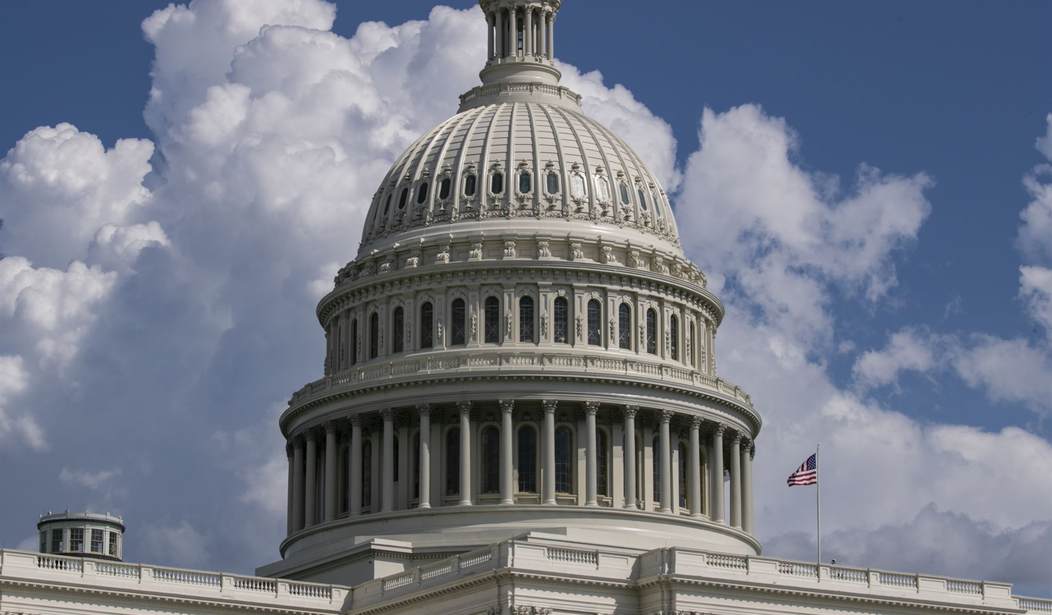Now that the dust has settled a little bit, let's review a few of the issues, predictions, and pieces of analysis we offered in the lead-up to the midterm elections. I hope you'll indulge just a smidge of horn-tooting regarding my pre-election projections: Democratic gains in the House in the ballpark of 40 seats (I specified 36 on air Monday evening), Democratic gains of roughly half-a-dozen governorships, and a net Republican gain of maybe one US Senate seat. Outcomes are still being adjudicated, but here's what happened, as of this writing:
(1) The House. Democrats have flipped 28 House seats and lead in several more uncalled races. A small handful beyond that are almost exactly tied, some of which could tip into their column. Somewhat safely assuming that Democrats will end up somewhere in the mid-30's (FiveThirtyEight projects 37 gains), that's a decent-sized wave, but it's not atypical. In fact, it's...quite typical: "In every midterm election since the Civil War, the president's party has lost, on average, 32 seats in the House and two in the Senate," NBC reported. Prediction: Solid. Another relevant stat, which underscores the importance of the lessons in this WSJ editorial:
37 is also precisely the avg midterm loss for POTUS w/ <50% approval since WWII. https://t.co/0VXuYZ8Dha https://t.co/ZVpxkvgtAu
— Liam Donovan (@LPDonovan) November 8, 2018
(2) Governorships. Democrats took over GOP-held governorships in Illinois, Kansas, Maine, Michigan, Nevada, New Mexico, and Wisconsin. Republicans fell short in Connecticut, but appear well-positioned to gain one in Alaska (where the incumbent "independent" governor dropped out of the race and endorsed the Democrat). Assuming that neither Georgia nor Wisconsin's outcome changes substantially after potential legal action, the national results would add up to Democrats gaining exactly six governorships. Prediction: Spot on. For what it's worth, here are two silver linings about the GOP's diminished power at the state level:
Recommended
Per @RSLC: 2018 cycle will end with Republicans still controlling almost twice as many state legislative chambers as Democrats. https://t.co/T7DkPc54FI
— Nick Confessore (@nickconfessore) November 7, 2018
Scott Walker’s policy achievements won’t be undone any time soon. https://t.co/HDhQ5hsb83 pic.twitter.com/opdYWvTUtt
— John McCormack (@McCormackJohn) November 7, 2018
(3) The Senate. This was the brightest spot of the night for Republicans, who nearly ran the table on the most important upper chamber contests in the nation. They held serve in Texas and Tennessee, picked off Democratic incumbents in Indiana, Florida (pending a recount), Missouri, and North Dakota, and seem to have the upper hand in Arizona (for now, at least). Only Dean Heller lost in Nevada; meanwhile, both Joe Manchin and Jon Tester faced harder-than-expected fights in races seen as GOP longshots. If Martha McSally wins (we may not know for days or even weeks), Republicans will net three seats, improving their majority to 54/46. If she somehow loses, it will be a net gain of two seats, and 53/47. Either scenario is a meaningful improvement over the harrowing 51/49 balance of power that made the Kavanaugh battle so anxiety-laden. Throughout 2019 and 2020, Mitch McConnell will have more members, and more conservative members, to help confirm judges -- including, possibly, another SCOTUS justice. And he'll have much more of a cushion to work with, not needing to walk on eggshells with the Lisa Murkowskis of the world. Prediction: Slightly too pessimistic. But, in my own defense, my best Senate sources were sounding pretty bearish as election day arrived.
As for the polling, it was actually pretty good, on balance. It's an inexact science by its very nature, and there will always been some misses -- but overall, both the polling and the conventional wisdom was approximately accurate this cycle. Some of the highest-profile misfires appear to have been in Florida, Indiana, and Missouri. I'll leave you with Sen. Lindsey Graham's biggest take-away from the election, coming back to the issue that lit a fire underneath him that burned for weeks:
Liberal Democratic Senators and activists efforts to destroy Brett Kavanaugh ended up destroying Red State Democrats.
— Lindsey Graham (@LindseyGrahamSC) November 7, 2018
Hopefully this resounding rejection of the smear campaign by voters will make it less likely that this will occur again in the future.#KavanaughsRevenge
In my closing argument in favor of voting Republican this year, my top two issues were the economy and judges. According to exit polls, nearly seven-in-ten voters said the US economy is in "excellent" or "good" shape, and Republicans won those who prized the economy as their top concern by nearly 30 points. And it's undeniable that Senate Democrats paid a price for their Kavanaugh spectacle, which is another just outcome to that unfortunate saga. By the way, remember this post based on this data? The margins aren't perfect, but still...
Via NBC, here are the voting totals in some key states, as of yesterday. All the big caveats apply... #fwiw pic.twitter.com/s7IKDcX5rv
— Guy Benson (@guypbenson) November 6, 2018

























Join the conversation as a VIP Member